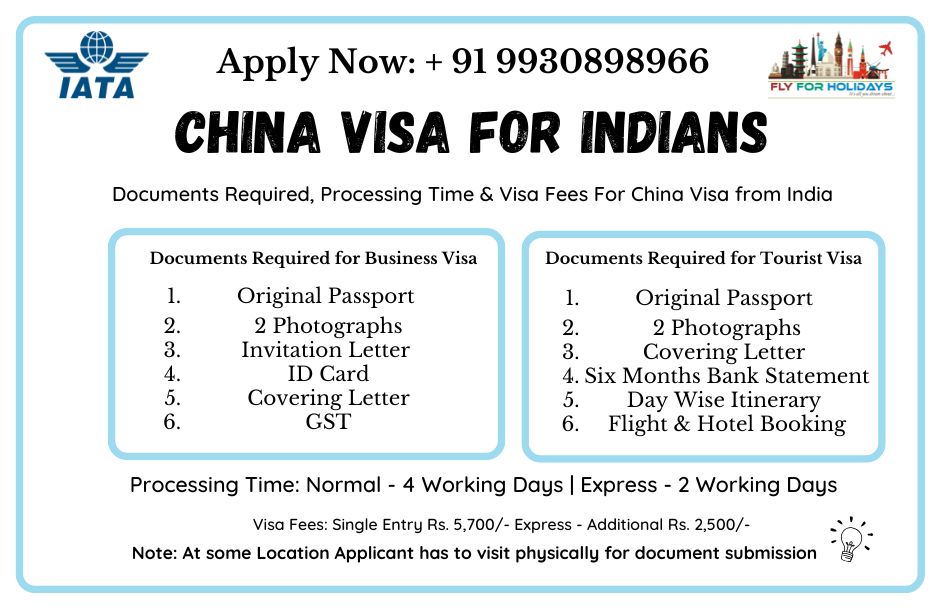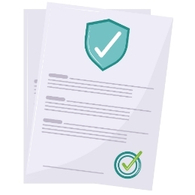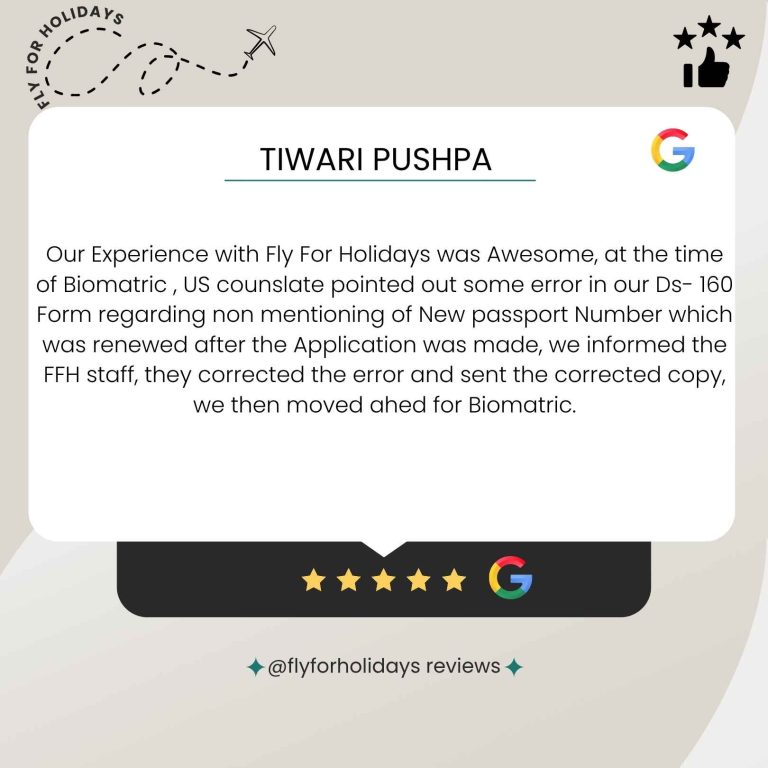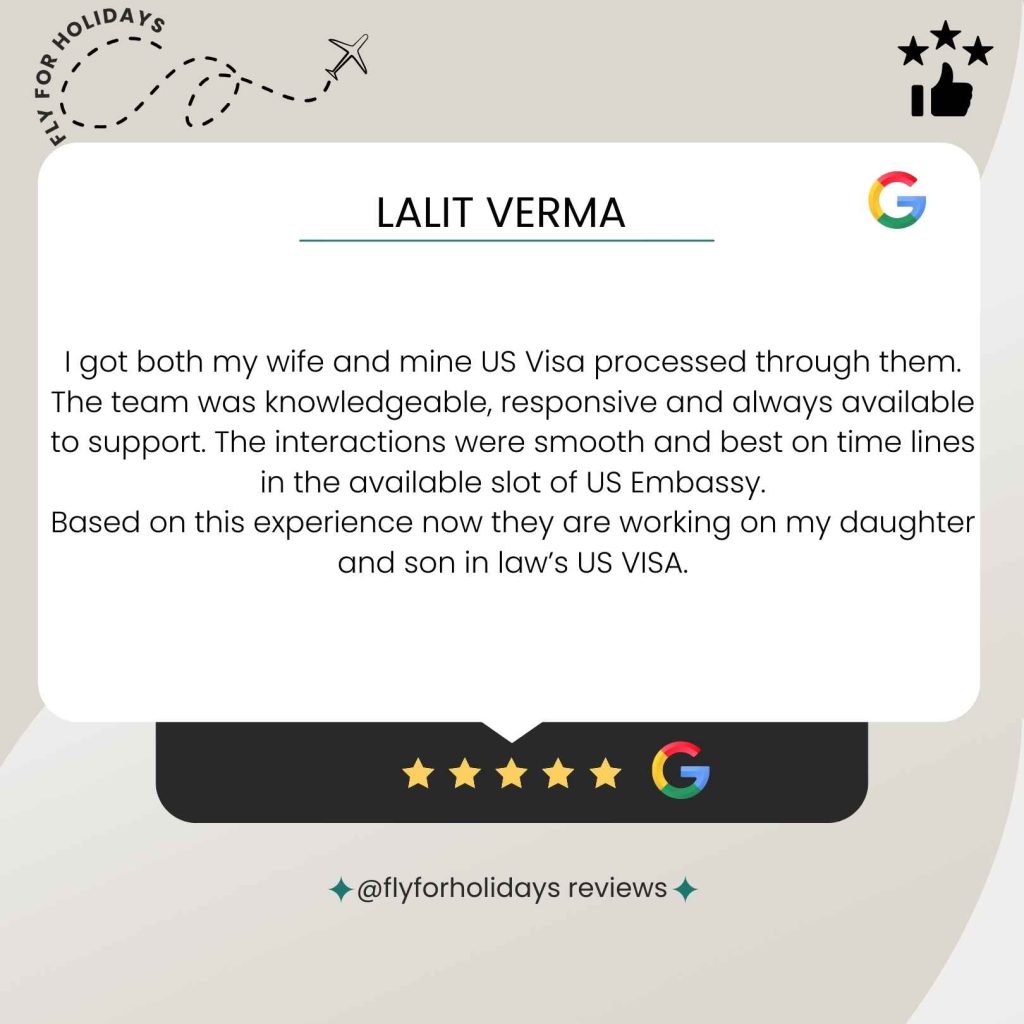Which China visa should I apply for if I’m going for tourism?
You should apply for the L visa, which is the standard tourist visa for China.
It allows you to visit for leisure, sightseeing, or visiting friends as a tourist.
You’ll usually get a single or double-entry visa valid for 30 days per stay.
Make sure to include hotel bookings and flight details with your application.
What visa do I need if I want to work legally in China?
You must apply for a Z visa, which is required for paid employment in China.
Before applying, your employer in China must provide a work permit or license.
After getting the Z visa, you must convert it into a residence permit in China.
You cannot work legally in China on a tourist or business visa.
Can I enter China for business meetings or trade shows with a tourist visa?
No, if you’re visiting China for business-related activities, apply for an M visa.
It covers meetings, trade fairs, supplier visits, and other business events.
Using a tourist visa (L) for business purposes may lead to problems at immigration.
Always match the visa type with your real travel intent.
What’s the difference between single-entry and multiple-entry China visas?
A single-entry visa allows you to enter China once; once you exit, it's no longer valid.
A double-entry visa lets you enter twice within the visa’s validity period.
A multiple-entry visa lets you enter and exit China many times, often for business.
Choose based on how many trips you’ll make during the validity period.
What type of visa should I apply for to study in China?
For long-term studies (more than 180 days), apply for an X1 visa.
For short-term courses (less than 180 days), use the X2 visa.
You’ll need an admission letter and a visa application form from the school.
After arrival, X1 visa holders must apply for a residence permit.
Can I use a tourist visa if I’m visiting family or relatives in China?
It’s better to apply for a Q visa (for family of Chinese citizens) or an S visa (for dependents of foreigners working/studying in China).
The tourist visa (L) is only appropriate if you're not staying with immediate family.
These family visas require invitation letters and proof of relationship.
They often allow longer stays than tourist visas.
What visa do I need to do an internship or volunteer program in China?
For internships, especially paid ones, you generally need a Z visa with employer sponsorship.
Unpaid internships may be allowed under an F visa, but only with proper documentation.
Volunteering also typically falls under the F visa category.
Always confirm with the organization and the embassy beforehand.
I’m transiting through China for a few hours — do I need a visa?
You may be eligible for a transit visa exemption (24-hour, 72-hour, or 144-hour), depending on the city.
This allows short stays without a visa if you're heading to a third country.
You must remain within the allowed city or province and show your onward ticket.
If you're not eligible, apply for a G visa (transit visa) before traveling.
Is there a special visa for cultural exchange or academic research?
Yes, for non-commercial academic visits, cultural programs, or training, apply for an F visa.
This visa is often used for researchers, guest lecturers, or artists.
You’ll need an invitation letter from the host institution in China.
It’s usually valid for short stays, so check the allowed duration.
What visa is required for media professionals or foreign journalists?
Foreign journalists and media staff must apply for a J visa — either J1 (long-term) or J2 (short-term).
These are strictly for those on media assignments with approval from Chinese authorities.
You must get an official invitation from China’s foreign affairs or press bureau.
Ordinary tourist or business visas are not valid for reporting work.
Which visa is best for China?
The best visa for China depends on your travel purpose.
- For tourism, the L Visa is best.
- For business trips, the M Visa is ideal.
- For work, the Z Visa is required.
- For study, the X Visa is the right choice.
Which visa type for China?
China offers various visa types:
- L Visa – for tourists and family visits
- M Visa – for business and trade
- S Visa – for dependents of foreign workers or students
What type of visa do you need for China?
The type of visa depends on your reason for travel:
Always match your visa type with your purpose of visit.
What is the R type visa for China?
The R Visa is for high-level foreign talents needed in China.
It is issued to professionals with special skills or expertise.
A Certificate of Foreign High-Level Talent is required.
This visa offers longer stay and simplified processing.
Who is eligible to apply for a China visa?
Anyone with a valid passport and a clear travel purpose can apply for a China visa.
Eligibility depends on your nationality, travel history, and visa type you're applying for.
You must show you meet all the requirements like financial proof, intent to return, etc.
Each case is reviewed individually by the consulate.
How long does my passport need to be valid to apply for a China visa?
Your passport must be valid for at least 6 months from the date of application.
It must also have at least two blank visa pages for the visa sticker.
If your passport is close to expiring, renew it before applying.
Some centers may reject short-validity passports automatically.
Can previous visa rejections affect my eligibility for a new visa?
Yes, previous visa rejections can affect your current application, but they don't mean automatic denial. You should be honest about your history and address any previous concerns.
Improved documentation and a clear travel purpose can help you reapply successfully.
Always check the reason for the earlier rejection.
Are there age limits for applying for a China visa?
There’s no strict age limit, but minors and elderly applicants may need extra documents.
For children, birth certificates and consent from parents are usually required.
Elderly applicants may be asked for medical insurance or proof of support.
Each consulate can have slight variations based on the applicant's profile.
Do I need to show financial proof to apply for a China visa?
Yes, for most visa types (especially tourist and student), proof of finances is recommended.
This may include bank statements, pay slips, or sponsor letters.
It helps show you can cover your expenses and won't overstay illegally.
Amount required varies by visa type and travel duration.
Are there nationality-based restrictions or visa-free arrangements for China?
Some countries have visa-free or simplified arrangements with China for short visits.
Others may face stricter scrutiny or require more documentation.
The rules differ depending on political agreements, security concerns, or health risks.
Check the latest visa policies for your nationality before applying.
Can I apply for a China visa from a third country, not my home country?
Yes, you can apply from a third country if you're legally staying there (residence permit, visa, etc.).
You’ll need to provide proof of legal stay in that country.
If you're on a tourist visa there, your application may be rejected.
It’s best to apply from your country of residence.
Are health certificates or vaccinations required to get a visa?
Generally, health certificates are not required for tourist, business, or short-term visas.
However, long-term visas (like work or study) may require a health check or medical form.
Also, depending on global outbreaks, vaccination proof may be asked.
Always check current health entry rules before applying.
Will a criminal record affect my eligibility for a China visa?
Yes, having a criminal record may affect your chances of getting a China visa.
You may be asked to declare past convictions or provide a police clearance.
Decisions are made on a case-by-case basis, depending on the offense.
It’s important to be truthful hiding it could result in a ban.
What if I overstayed a previous China visa , can I apply again?
Overstaying a China visa is a serious violation and can hurt future applications.
You may be fined, blacklisted, or banned from entering for a period of time.
If allowed to reapply, you'll need to explain the situation in detail.
Future visa approvals are not guaranteed.
What are the requirements for a China visa?
To apply for a China visa, you need:
- Valid passport (at least 6 months validity + 2 blank pages)
- Completed visa application form (online + signed)
- Recent passport-size photo
- Proof of travel purpose (e.g., flight & hotel bookings, invitation letter)
- Proof of financial means (bank statements, ITR)
- Additional documents based on visa type (e.g., business invitation, university letter)
Is a China visa difficult for Indians?
No, China visas are not difficult for Indians if:
- You submit correct and complete documents
- Your travel purpose is genuine
- You meet financial and legal requirements
Rejections happen mainly due to incomplete applications, fake documents, or mismatched travel purpose.
How do I prove sufficient funds for a China visa?
You can prove financial ability by submitting:
- Bank statements for the last 3–6 months (with healthy balance)
- Income Tax Returns (ITR) for the past 2–3 years
- Payslips, fixed deposits, or sponsorship letters if applicable
A general rule: maintain ₹1.5–2 lakhs or more in your account for a tourist visa.
How to avoid China visa rejection?
To reduce the risk of rejection:
- Ensure all documents are genuine and complete
- Match your purpose of visit with the correct visa type
- Avoid last-minute applications; apply at least 1 month in advance
- Show strong financials and ties to India (job, family, property, etc.)
What is the COVA form and where do I fill it out?
The COVA form is China’s official online visa application form, used globally.
You must fill it out on the China Online Visa Application (COVA) website.
It’s required for all visa types and must be completed before booking your appointment.
Once submitted, print the form and bring it to your visa center visit.
Can I save my progress and complete the COVA form later?
Yes, the system allows you to save your progress and return later.
You’ll receive a temporary application number to log back in.
However, the session expires if inactive for too long, so complete it within 30 days.
Always save your number and double-check details before submitting.
What are common mistakes applicants make on the COVA form?
Mistakes often include wrong passport numbers, inconsistent travel dates, or mismatched details with other documents.
Spelling errors in names or address fields are also common.
Always use ALL CAPS as required and match info exactly with your passport.
Review every section before submission to avoid delays.
Can I edit the COVA form after submitting it?
No, once submitted, the form cannot be edited.
If you make a mistake, you must start a new application with a new application number.
Make sure to cancel your original AVAS appointment if already booked.
It’s better to double-check everything before submitting the first time.
Do I need to print the COVA form for my appointment?
Yes, you must print the completed and submitted form and bring it to your appointment.
Print all pages, including the final confirmation with your barcode.
Without the printed form, you may be refused at the visa center.
It’s part of your essential document pack.
What sections are mandatory in the COVA form?
All sections marked with a red asterisk (*) are mandatory.
This includes personal info, travel plans, employment details, and travel history.
Incomplete or vague answers can cause your application to be rejected.
Provide clear, complete, and truthful responses throughout.
What should I write under “purpose of visit” in the form?
Use standard terms like "tourism," "business meetings," "study," or "family visit."
Avoid vague descriptions like "exploring options" or "personal reasons."
Make sure this purpose matches your visa type, itinerary, and supporting documents.
Inconsistencies here often lead to rejections.
How detailed should my travel itinerary be in the COVA form?
You should list the cities, arrival/departure dates, and hotel names or addresses.
It doesn’t have to be minute-by-minute, but should reflect your travel intent clearly.
Keep it consistent with your hotel and flight bookings.
Even minor mismatches can raise questions.
Can I use one COVA form for a family or group application?
No, each applicant must fill out their own COVA form, even for children.
Group or family travelers need to submit forms individually.
However, family documents (like proof of relationship) can be reused in each file.
Children’s forms should be filled out by parents or guardians.
Do I need to re-submit the COVA form if my travel plans change?
Yes, if your dates, destinations, or visa type change, you must submit a new form.
The COVA form should reflect your most current travel details.
Print and use the latest version at your appointment.
Outdated forms may be rejected or questioned.
How to fill an application form for a visa?
To fill a visa application form:
- Visit the official visa website of the destination country.
- Choose the correct visa type (tourist, business, work, etc.).
- Fill in accurate personal, passport, and travel details.
- Review, print, and sign the form before submission.
Always use capital letters if handwritten and avoid errors or overwriting.
How to fill a China visa application form?
To fill a China visa form:
- Go to the official website: https://www.visaforchina.cn
- Choose your country and start a new visa application.
- Complete sections on personal info, travel plan, work/education history, and previous
travel.
- Upload a photo (if required), print the form, and sign it.
- Book an appointment and take the form and documents to the Visa Application Centre.
Can I fill out a visa application online?
Yes, most countries now allow online visa application submission.
For China, the form is filled online, but you must submit documents and biometrics in person.
Other countries may offer full e-visa options, allowing complete online submission and payment.
Always use the official visa website to avoid scams.
How to write a visa application? (For visa request letters)
If you’re writing a visa request letter, include:
- Your full name, passport details, and purpose of visit
- Dates of travel and planned itinerary
- A polite request for the visa, and assurance of returning
- 0Signature, date, and any attached supporting documents
Use a formal tone and keep it clear, honest, and concise.
How much is the China visa fee for Indian citizens?
As of the latest update, the standard visa fee for Indian applicants is ₹3,900 for most visa types.
There may be additional service charges by the visa center (usually ₹1,800–₹2,000).
Fees can vary based on visa type (single-entry, multiple-entry, etc.).
Always check with the Chinese Visa Application Service Center (CVASC) for the latest rates.
Are visa fees the same for all types of visas?
No, fees can vary based on the type of visa (L, M, Z, etc.) and the number of entries.
A single-entry visa is cheaper than a double or multiple-entry visa.
Long-term or work/study visas may also have slightly different pricing.
Always confirm based on your visa type before submitting your application.
What payment methods are accepted for visa fees in India?
Most Chinese visa centers in India accept cash, credit/debit cards, and bank drafts.
Some centers may prefer cash or specific payment modes, depending on their system.
Always bring exact change or check payment mode options in advance.
Online payment is typically not available for regular visa applicants.
Is the visa fee refundable if my application is rejected?
No, China visa fees are non-refundable, even if your application is denied.
This includes both the visa fee and the service charge.
You’ll need to pay again if you reapply.
Make sure your documents are in order before submitting.
Is there an extra charge for express or urgent visa processing?
Yes, if you choose express (2–3 days) or same-day (urgent) processing, there’s an additional fee.
This fee is separate from the visa cost and varies by center.
Express options are subject to approval and availability.
They’re not guaranteed for all visa types or applicants.
Do children pay the same visa fees as adults?
Yes, in most cases, children pay the same visa fees as adults.
However, service fees might be lower in some cases or waived at the consulate’s discretion.
Minors still need a full visa application and supporting documents.
There are no child-specific discounts unless stated otherwise.
Are there additional charges apart from the visa fee itself?
Yes, most visa application centers charge a service fee on top of the actual visa fee.
If you opt for courier return, photocopying, or form-filling help, extra charges apply.
These are paid directly at the center and are usually clearly itemized on your receipt.
Some optional services are not mandatory.
When do I pay the China visa fee before or after submission?
You pay the visa fee after submitting your documents and once they’ve been accepted by the center.
At the counter, you’ll be issued a receipt and asked to make the payment.
Do not pay anything upfront or online unless instructed by official staff.
Always ask for a payment receipt after paying.
Do I need to carry exact change when paying in person?
While most centers accept cards, it’s a good idea to carry exact cash, especially in smaller cities.
Some centers don’t accept ₹2,000 notes or may not have change for large denominations.
Carrying the exact or approximate amount helps speed up your process.
Ask the center if cash is preferred.
Can I pay someone else’s visa fee on their behalf?
Yes, you can pay the visa fee on behalf of someone else, as long as their application has been accepted.
You’ll need the receipt or reference number from their submission.
Make sure to collect and store the official payment receipt for tracking.
It’s commonly done for family or group applications.
Attending the Visa Center
Do I need to book an appointment before visiting the China Visa Center in India?
No, Chinese visa centers in India generally allow walk-in submissions during business hours.
You do not need to pre-book a slot through any online system.
However, it’s best to arrive early as queues can be long during peak seasons.
Always check the center’s working hours before you go.
What documents should I carry to the visa center?
Bring your passport, printed COVA form, photo, and all supporting documents.
Also carry originals and photocopies of key items like ID, bookings, and invitation letters.
Don’t forget the printed checklist if provided during the COVA submission.
Organize everything clearly to speed up the process.
Will I be giving biometrics like fingerprints at the center?
Yes, most applicants aged 14 to 70 are required to provide fingerprints and a photo.
Biometrics are taken during your in-person submission at the visa center.
This is a standard security measure and usually takes only a few minutes.
Kids under 14 and seniors over 70 are usually exempt.
What happens during my visit to the visa center?
First, you’ll submit your documents and the staff will check them for completeness.
Next, you may be asked for biometrics (photo and fingerprints).
Finally, you’ll be given a payment receipt and an expected collection date.
The whole process usually takes 30–60 minutes, depending on queues.
What if I forget a document or make a mistake?
If a required document is missing or incorrect, your application may be returned or put on hold.
Some centers allow you to return the same day with the correct documents.
Minor errors might be fixed on-site, but major ones require re-submission.
Always double-check your file before heading to the center.
Can someone else submit my China visa application for me?
Yes, authorized representatives can submit documents on your behalf, except for first-time applicants.
However, if biometrics are required, you must appear in person.
Check with your local center about who qualifies as a representative.
A signed authorization letter and ID copies may be needed.
What time should I go to the visa center?
It’s best to arrive early in the morning, especially on Mondays or after holidays.
Visa centers usually work from 9:00 AM to 3:00 PM, with a lunch break in between.
Going early gives you a better spot in the queue and avoids last-minute delays.
Always check timings for your specific city.
Do I need to bring my own visa photo?
Yes, bring one recent passport-sized color photo that meets China’s specifications.
Some centers offer photo services on-site, but it’s safer to bring your own.
The photo must be on a white background with no shadows or accessories.
Poor-quality photos can delay your application.
Is there a dress code or formal requirement for visiting the visa center?
There’s no strict dress code, but it’s advised to dress neatly and modestly.
You may have your photo taken for biometrics, so avoid headwear or flashy outfits.
Smart casual attire is appropriate for most applicants.
Avoid overly casual wear like pajamas or beachwear.
What should I do after submitting my visa application?
After submission, you’ll receive a pickup receipt with a tracking number.
You can track your application online or return to the center on the given date.
Keep the receipt safe — you’ll need it to collect your passport.
Some centers also offer courier delivery if you opt for it.










